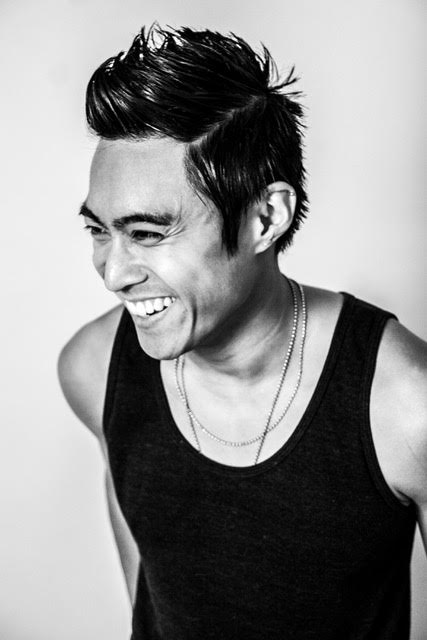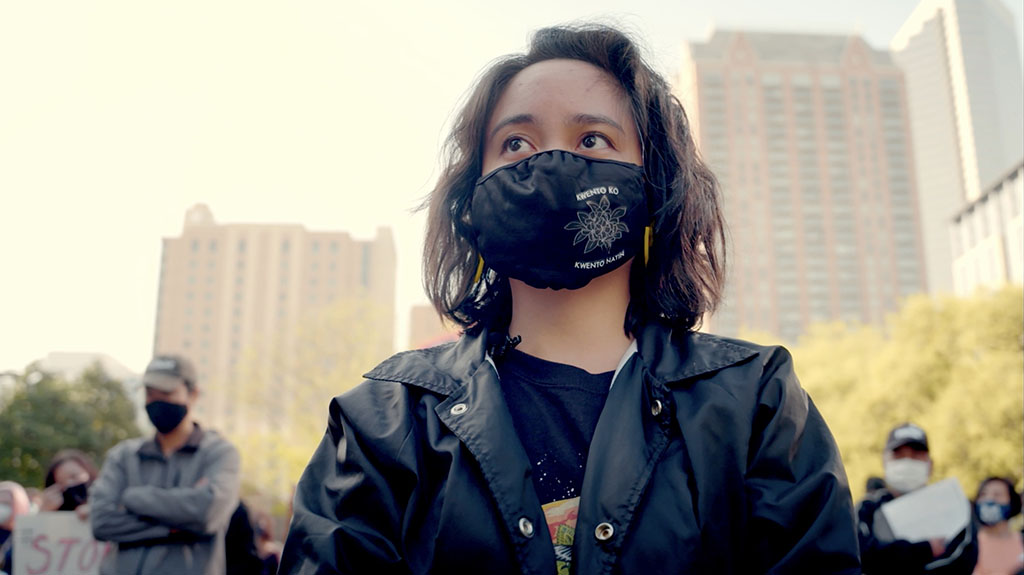By Kai Curry
NORTHWEST ASIAN WEEKLY
Already, we forget how much we went through and what it felt like.
Filipino American PJ Raval’s newest documentary, “Who We Become,” is a timeline of the pandemic years and how it impacted our families, our nation, ourselves. Focusing on three Filipinas from Texas (where Raval is from), “Who We Become” accurately reflects all of the emotions and revelations that stunned and disturbed us, from (re?)-realizing the extent of racism in the U.S. to struggling over generational gaps that threatened to widen and forced many of us to take a stand.
During late 2019 to early 2020, Raval was developing an idea to tell a story he knew from firsthand experience in Austin, Texas.
“There’s an amazing younger Filipino American community here that truly is committed to and passionate about using their platforms and their voices to contribute to some kind of social change and I really wanted to highlight that,” Raval told the Asian Weekly. Then the pandemic “changed everything.”
“I saw every social injustice, every social issue, being brought to the forefront. All of the broken systems, all of the broken forms of communication, the division/divisiveness…got pushed to the extreme.” Raval decided to incorporate what the Filipino American community was going through in “Who We Become” and thereby “capture this moment that for many of us was very unprecedented.”
“Who We Become” follows three college-age Filipinas’ journey through the year spanning the onset of pandemic lockdown, from Trump calling it the “China virus,” the George Floyd murder, the protests that went from peaceful to manipulated by looters and conspirators, to the shooting of Asian Americans in Atlanta in 2021. It is a year during which these three young people learn and grow, and their families learn and grow, too. It’s painful, and it’s a constant struggle, a constant questioning of how to do everything we thought we knew how to do, while at the same time giving us a chance to repair broken relationships before they got even worse.
The subtitle of the documentary is “A Story of Kapwa,” the definition of which we are given at the beginning—“How we are the same, equal, and connected to our fellow human beings.” It’s a particularly Filipino feeling and a term Raval, a first generation Filipino American, recently became familiar with himself.
“It’s a word that doesn’t fully translate from Filipino into English,” Raval explained. “But is loosely translated to this idea of togetherness or an unbreakable bond between people. I really loved that idea and…I used that as an inspiration in making the film because it was something that I saw as unique to the experience of those of Filipino descent.”
It’s true. These three protagonists—Monica, Lauren, and Jenah—who we follow through their real life recordings of themselves through their phones and social media, are able to do something that a lot of us were unable to do—remain close to their families during the pandemic in spite of differences, and in spite of the generational gap that was tested. There is a scene after much buildup in which Monica is talking to her dad about her desire to protest the George Floyd murder (and all racist-based murder). You can tell her frustration and yet she keeps her expression remarkably placid. She is never rude to her parent, who thinks that “it’s all propaganda,” that young people are (too?) “emotional” and “respond to their intuition” vs. old people, especially older Filipino people, who tend to keep their emotions to themselves.
“Remember when you started going to college?” Monica’s dad asks. “You came home a liberal?” It nearly gives you again the same sense of unease you felt when it happened the first time. Monica’s dad thinks she has been “brainwashed” (about what is a bit vague), yet still she hopes to eventually convince her parents to support her in her activism. In the meantime, she realizes that is “a long game” and she’s not going to “cut off friends and family who don’t agree with the Black Lives Matter movement,” as she has seen others do.
Each participant slowly reveals themselves to their families, whether it’s their passion to stand up against racism for others—and then for Asian Americans themselves—which is the case for all three (Jenah is a founding member of Uni Pro: Filipino American Unity for Progress Inc.), or whether it’s to announce that they are bi and have a girlfriend, as is the case for Lauren.
“Go for it,” answers Lauren’s tita. And that’s the result for the most part. While their parents and other elders are concerned for their safety, and while they disagree with them, they also stick with them.
“Who We Become” documents the impressive ability of three families to navigate one of the most trying times of our national history. It demonstrates the irony that, amidst the fears of isolation spurred by social distancing, many of us, in fact, grew closer. Through effort.
“It made people realize what they had been taking for granted,” Raval suggested. “It also, perhaps, made some of us see our parents and families and members of an older generation, especially who immigrated…[and] understand things in a different way.” Raval commented that many from the older generation, when they immigrated to the U.S., had already isolated themselves—they had lost “the larger communities that they had grown up around.” They had kept their traditions, their food, their values, all of which are sources of comfort to their children but also sources of conflict as their children spread their wings, so to speak, in a country that can tend to promote individualism over community, as Raval pointed out. In the Philippines, “it’s the parents’ world,” a relative explains during a remarkable round table initiated between the two generations that have gathered for Lauren’s college graduation.
The surprisingly healthy outcome of this pandemic year, at least for some, is that “it also allowed us to understand our families histories in a different way and start seeing these members with their own unique histories as well,” Raval stated. Not all families talked. But these families did. Sometimes, it was hard. Sometimes, the parents were pushed to their limits. But everyone forged on. Jenah wrote beautiful poetry about her experience, which she reads to us: “Sometimes anger rips at me the same way it did my father,” but she remembers that there is also tenderness in her dad. Her “rage becomes love.” “I am angry at injustice because I love harder than the frustration,” she tells us. Love harder. That’s what all of these families do. They love harder than many people do. They try harder to understand each other, on a small and large scale, and stand up against the hatred and fear around them. Instead of fostering divisionism, they foster unity.
Who did we become? “We all became our true selves,” answered Raval. We realized “what’s truly important when things can easily be lost, when things can easily be disconnected, when…times are so unpredictable. [The pandemic] really became a moment of self-reflection… and of what’s important to you? Who is important to you?” We can all learn more about kapwa from this film, and from the brave families whose stories of an unforgettable year are highlighted in the film, who faced a pandemic, faced racism, and came out stronger, together.
“Who We Become” is available to stream on Netflix.
Kai can be reached at info@nwasianweekly.com.






